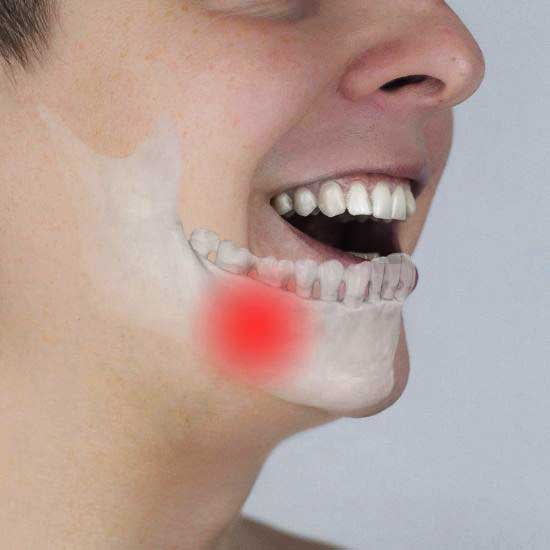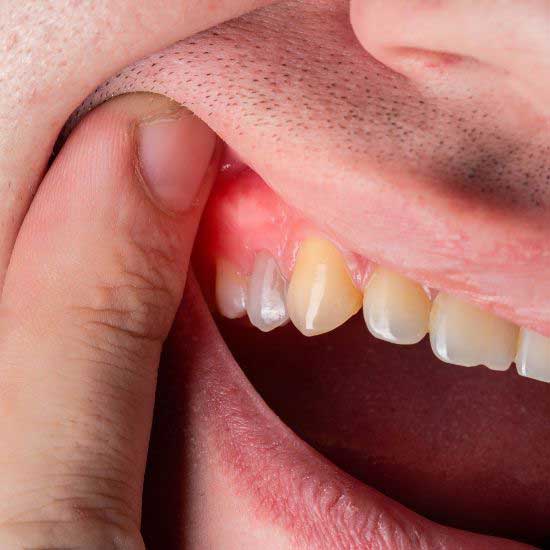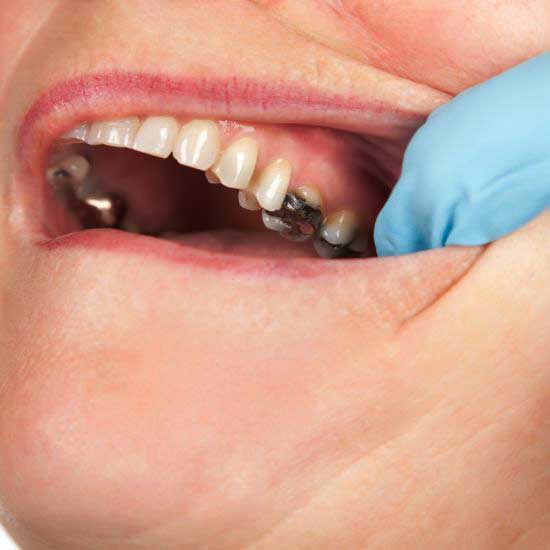Toothache
Table of Contents
Understanding the Causes, Symptoms, and Treatment Options
Toothache is one of the most common complaints that people suffer with. In fact, it is estimated that up to 90% of the population will experience toothache at some point in their lives.

Symptoms of Toothache
Toothache can manifest in different ways, depending on the underlying cause. Here are some of the most common symptoms of toothache:
- Pain: The most obvious symptom of toothache is pain. The pain can range from mild to severe and can be constant or intermittent. It can also be sharp or dull, depending on the underlying cause.
- Sensitivity: If you experience sensitivity when you eat or drink hot or cold foods, you may have tooth sensitivity.
- Swelling: Swelling in your gums or face can occur when the infection spreads beyond your tooth.
- Headache: Toothache can sometimes cause a headache, especially if the pain is severe.
Are you experiencing a toothache?
If you are experiencing toothache, it can be quite distressing, and it’s important to consult a dentist to understand the underlying causes, symptoms, and treatment options available.



Causes of Toothache
Toothache can occur due to a variety of reasons. Here are some of the most common causes of toothache:
- Tooth Decay: One of the most common causes of toothache is tooth decay. When bacteria in your mouth break down sugars and starches, they produce acid that can eat away the enamel on your teeth, causing cavities. If left untreated, cavities can spread further into the tooth, infecting the nerves,leading to toothache.
- Gum Disease: Gum disease is another common cause of toothache. When plaque and tartar build up on your teeth, they can irritate your gums, leading to inflammation and infection. This can cause toothache, especially when the infection spreads to the root of your tooth.
- Tooth Sensitivity: If you experience a sharp pain when you eat or drink hot or cold foods, you may have tooth sensitivity. This can occur when the protective layer of enamel on your teeth wears away, exposing the sensitive dentin underneath.
- Tooth Fracture: A tooth fracture can occur due to a variety of reasons, such as trauma or biting down on hard objects. This can cause toothache, especially if the fracture extends to the nerve of the tooth.
Frequently Asked Questions on Toothache
What causes toothaches?
Toothaches can be caused by a variety of factors, including tooth decay, gum disease, a cracked tooth, exposed tooth roots, and jaw joint disorders. Sometimes, toothaches can also be a symptom of a sinus infection or other medical condition.
How can I prevent toothaches?
Good oral hygiene is key to preventing toothaches. This includes brushing your teeth at least twice a day, flossing daily, and visiting your dentist for regular check-ups and cleanings. You should also avoid sugary and acidic foods and drinks, and wear a mouthguard if you play sports or grind your teeth.
What can I do to relieve toothache pain at home?
You can try using over-the-counter pain relievers like ibuprofen or acetaminophen to ease the pain. Applying a cold compress to your cheek or using numbing gels or rinses may also help. However, it's important to see a dentist if your pain persists or worsens.
When should I see a dentist for my toothache?
You should see a dentist as soon as possible if you have a toothache that lasts for more than a day or two, or if you have any signs of an infection like fever or swelling. Delaying treatment can make the problem worse and may lead to more extensive and costly treatment.
Can a toothache go away on its own?
A toothache may go away on its own if it's caused by a minor issue like a small cavity or gum irritation. However, if the toothache is caused by a more serious problem like an infection or a cracked tooth, it's unlikely to go away without treatment. It's important to see a dentist to determine the cause of your toothache and get appropriate treatment.
A glossary of toothache terms
Root Canal
A dental procedure that removes infected or damaged pulp tissue from the inside of a tooth to relieve pain and prevent further infection.
Toothache
Pain or discomfort in the tooth, typically caused by dental decay, infection, or injury.
Dental caries
The medical term for tooth decay or cavities, which occur when the tooth enamel is eroded by bacteria and acid.
Abscess
A collection of pus caused by a bacterial infection, often resulting from dental decay or injury.
Gingivitis
Inflammation of the gums, typically caused by poor oral hygiene, plaque buildup, or bacterial infections.
Periodontitis
A severe form of gum disease that can cause tooth loss, bone damage, and other complications.
Tooth extraction
The removal of a tooth from the socket in the jawbone, typically performed when a tooth is severely damaged or decayed.
Analgesic
A pain-relieving medication that can be used to alleviate toothache.
Crown
A cap or covering placed over a damaged or decayed tooth to restore its function and appearance.
You might be also interested in

Family Dentist in Browns Plains
This family dentist in Browns Plains also provides a full range of dental services including root canal treatment, fillings, extraction of teeth, cleaning and polishing, dental implants, dentures, veneers, crowns and bridges, tooth whitening, custom fitted mouth guards, as well as preventive dentistry for children.
Call us to schedule your comprehensive dental exam now at +61 434 921 570.